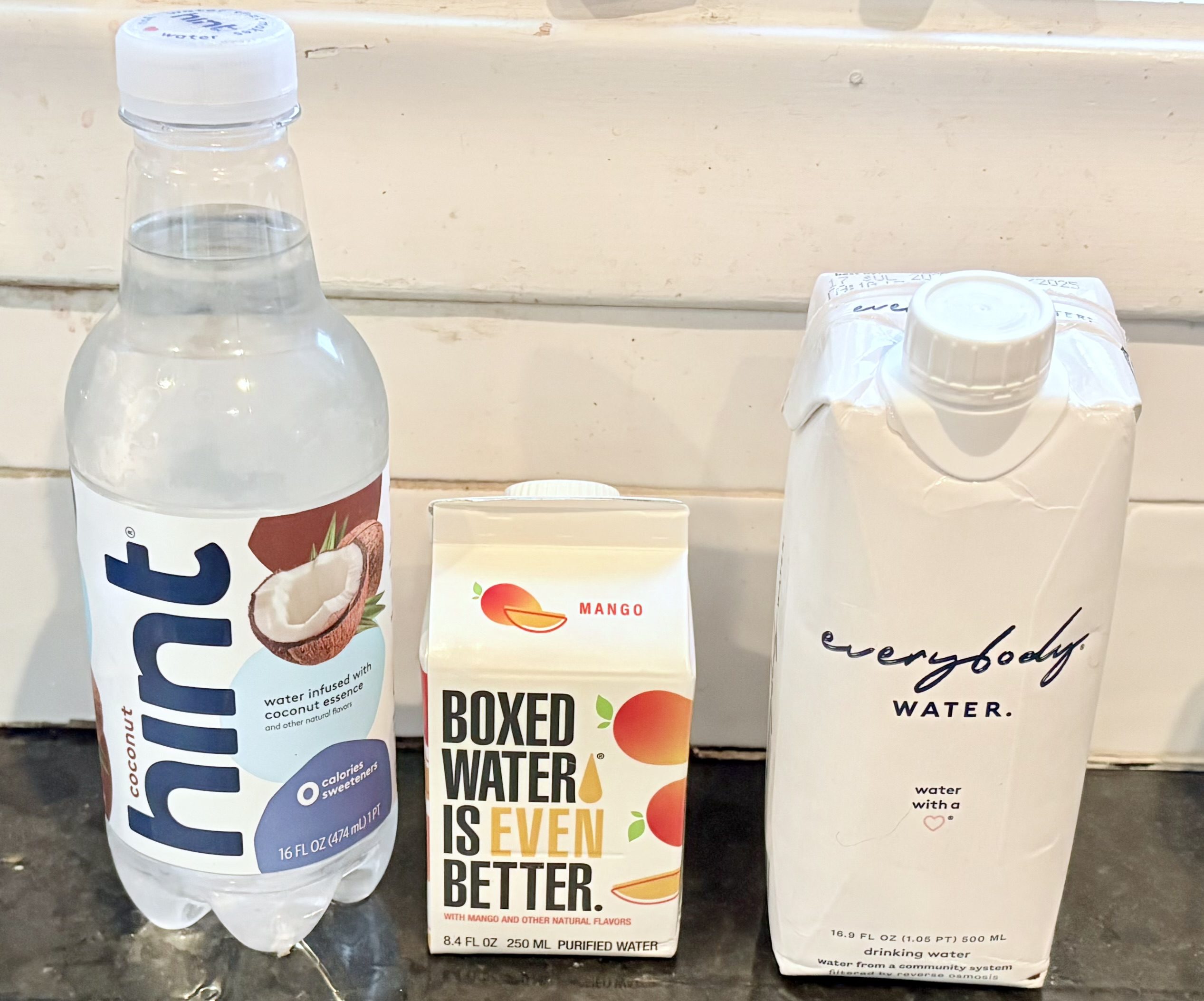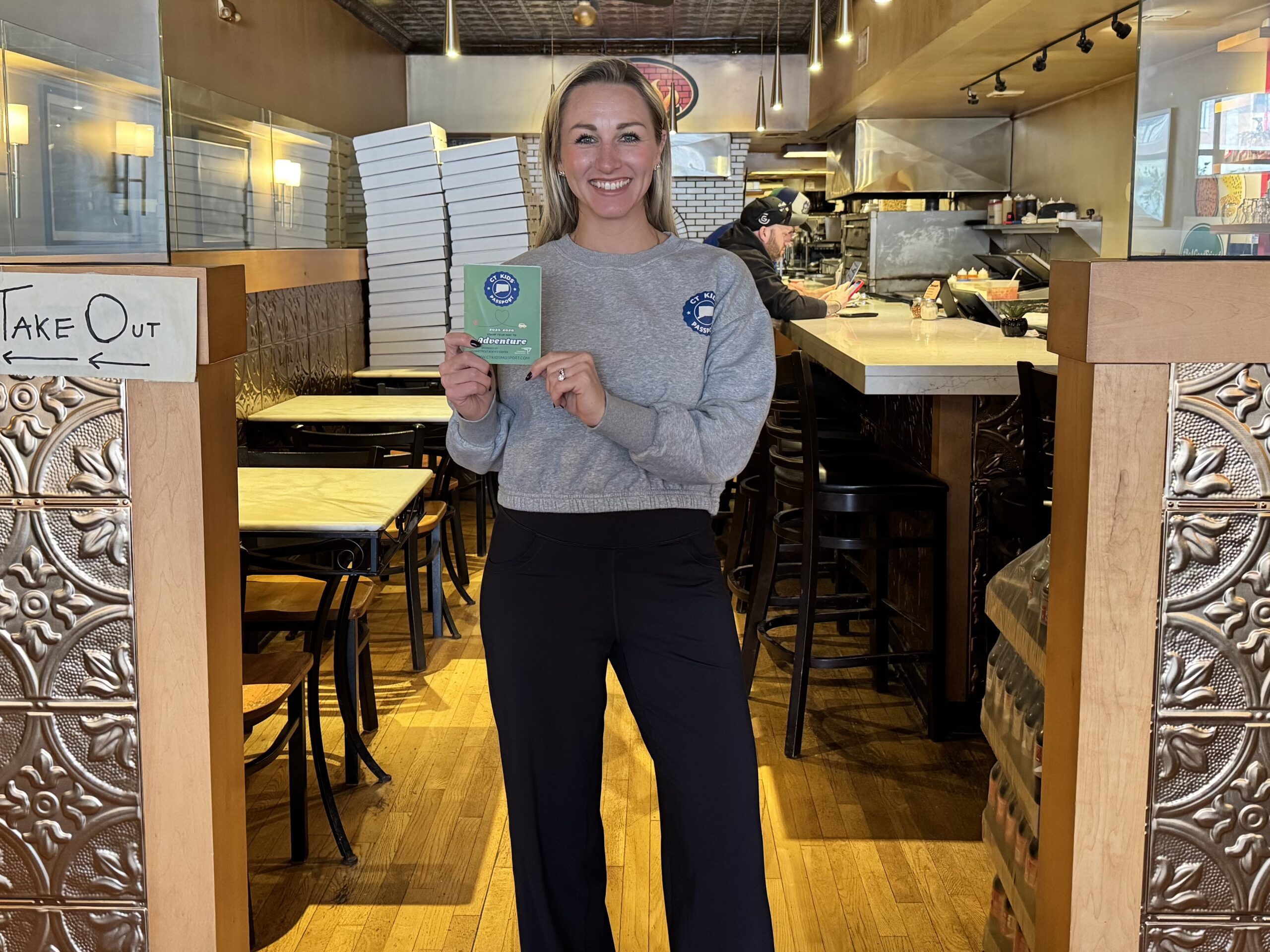Consumer Diary: Boxed Water, Medicare Open Enrollment Scams

Audio By Carbonatix

Hint Coconut water and two cartons of boxed water. Photo credit: Harlan Levy
Consumer columnist and West Hartford resident Harlan Levy has more than 20 years of experience writing stories about everyday experiences that anyone could encounter.

Harlan Levy. Courtesy photo
By Harlan Levy
I’ve been drinking coconut-flavored water for more than a decade in spite of my wife’s warning about microplastics leaching from the bottle into the water. I just disregarded her advice, figuring Hint water was better than seltzer or ginger ale, so why worry?
But last week, on a whim, I searched Amazon for water in paper boxes, which is assuredly microplastics-free. So I decided to order a half-case of 11.2-ounce boxes of Everybody Water and a 24-pack of 8.5-ounce cartons of mango-flavored water (which actually has a mango taste) from the company called Boxed Water is Better..
So far the boxed water tastes fine when I add ice and pour it into one of my steel Zojirushi tumblers, which keeps it cold for 24 hours.
And so the experiment begins.
I also did a bit of research about boxed and bottled water. Here’s what I found:
- Boxed water can be healthier than plastic-bottled water because it may contain fewer microplastic and nanoplastic particles, a known health concern, as plastic bottles can leach these tiny particles into the water and then into your body. Microplastics are a growing concern, as they are found everywhere, including in our food, air, and water. Research is ongoing into the potential long-term health effects, but early studies have found microplastics in human blood, organs, and brain tissue. A 2018 study found microplastics in nearly all tested brands of bottled water, and a more recent study found around 240,000 plastic fragments in a typical liter of bottled water.
- Best advice: Drink water from paper boxes or bottled water packaged in aluminum cans when possible, as it eliminates the plastic bottle as a microplastic source.
- Additionally, some companies like Everybody Water and Boxed Water Is Better emphasize using plant-based, renewable materials for their caps and packaging, which can reduce a product’s overall carbon footprint and impact on the environment, including factors like ozone depletion and global warming.
- EverybodyWater states that it sources water from a community system that flows directly into its filling facility, where it goes through a multi-step filtration system. “We don’t believe it is sustainable to be hauling around water in trucks from one place to another, so we believe sourcing water where we package and filtering on-site makes a lot of sense,” the company says. Also, the paper in the carton’s paperboard comes from responsibly managed forests and other controlled source. The company adds that the plant-based caps from Tetra Pak are made from sugarcane, another renewable material. The cartons are also BPA-free and non-PET.
- Hint says its bottles are made from 100% recyclable PET plastic, with the company noting no BPA or other plasticizers are used. However, PET is a type of plastic that can release microplastics into the water over time, especially when exposed to conditions like heat or light. Hint also offers water in lightweight, recyclable aluminum cans, which provide an alternative to plastic.
Medicare Open Enrollment scams
The Federal Trade Commission last week issued a warning: “Every year, scammers get more active around Medicare Open Enrollment Period, trying to get your money, information, or both. As you consider your health coverage and prescription options during this period (Oct. 15-Dec. 7), learn to spot the scams.”
- Scammers often impersonate Medicare and contact you unexpectedly. They might sound professional and even have some of your personal information. They’ll say you need a “new” or “updated” Medicare card and ask for your Medicare, bank account, credit card, or other financial information. But real Medicare cards are free and mailed to you automatically. And true Medicare representatives won’t call, text, or email you out of the blue to ask for your numbers or a payment.
- Medicare will only ask you to verify information if you contact them first, and they won’t try to sell you anything or tell you to pay for your Medicare card. Only scammers do that.
- Don’t rely on your caller ID. It might show Medicare’s name or phone number, but caller ID can be faked. To check it out, hang up and call 1-800-MEDICARE (1-800-633-4227).
- Get help to compare costs, coverage, and plans. Contact your State Health Insurance Assistance Program (SHIP) for assistance. And find information about your coverage options at Medicare.gov – the official U.S. government site for Medicare – or by calling 1-800-MEDICARE.
Then you’ll know.
NOTE: If you have a consumer problem, contact me at [email protected] (“Consumer” in subject line), and, with the power of the press, maybe I can help.
Like what you see here? Click here to subscribe to We-Ha’s newsletter so you’ll always be in the know about what’s happening in West Hartford! Click the blue button below to become a supporter of We-Ha.com and our efforts to continue producing quality journalism.



